David Lynch is like some kind of terrifying spaceworm digging into our collective unconscious and wriggling around and maybe singing a dreamy song while he’s in there. I don’t know how he does it. Does anyone? It’s like the surface reality of his films is the subtext, and the subtext is the surface reality, without either being what they are. His movies aren’t dreamlike, but like dreams the moment you try to describe what’s going on underneath what’s on the surface, they vanish.
Lynch’s movies demand to be turned upside down and inside out and interpreted to the last frame, yet to do so is to rob them of meaning. The closer one looks at them, the harder they are to see. Which is why I find it best to just keep watching them again and again over the years and in the hope they and I become one.
Is there any sense to ranking Lynch’s films? Certainly not. But senselessness has never stopped me from doing anything before. So let’s dive in.
I’ve included every movie Lynch has directed on this top ten list, because, conveniently, he’s only directed ten movies. But which are the very most bestest? This is what we must decide. Or what I must decide for you, you lazy bums.
10. Inland Empire (2006)
Does anyone have any idea what this movie is? I say no. They do not. Inland Empire is Lynch saying Fuck it, I’m just going to put every weird idea I’ve ever had up there in random order, and to hell with anyone who pretends to know what it’s about. He shot it without a script, purposefully doing whatever felt right and hoping it would all tie itself up into something by the end. Naturally, it has been hailed as a work of genius. While I agree that it is the work of a genius, the work itself is a long, slow muddle of Lynch’s favorite tropes, plus his fabled giant rabbit show. He shot it on standard definition digital video and man does it ever look it. More than its insane length (three hours) and random assemblage of scenes, it was the look I found most off-putting. Every other movie he’s made he shot on film, and every one of them is gorgeous. Inland Empire looks like shit.
But worse than Dune, you ask? Could anything be worse than Dune? For now, I’m saying yes. Maybe one day I’ll watch Inland Empire a second time and change my mind. One day many, many, oh so very many days from now.
9. Dune (1984)
He’d only made two movies, and already Hollywood wanted him in the big leagues. George Lucas wanted him for (then titled) Revenge of The Jedi, but Lynch didn’t want to play in someone else’s universe. Instead he agreed to direct Frank Herbert’s Dune for Dino De Laurentiis. Alas. If only Jodorowsky had made his version, we’d none of us be suffering lifelong nightmares of sweaty Sting in spaceman underwear.
Dune is a movie nobody liked. Not Lynch, not De Laurentiis, not fans of the book, not fans of Lynch, and not people who’d heard of neither Lynch nor the book. It’s not completely terrible—there are some interesting performances and compellingly odd visuals and such—but mostly it’s terrible. Lynch’s version was originally three hours long. He was forced to shorten it drastically, which he did. And that’s the only Lynch version there is. Longer TV and foreign edits were cut by others, with Lynch’s name replaced in the credits by Alan Smithee. He has expressed zero interest in ever creating a longer “director’s cut.”
Of the three years he spent making Dune, Lynch says: “I didn’t feel I had permission to really make it my own. That was the downfall for me…I didn’t have final cut…I really went pretty insane on that picture.”
8. Lost Highway (1997)
I almost like Lost Highway, but then again, not so much. I saw it recently for the first time in years (in a theater on 35mm, even), and though it has this wonderfully empty, eerie look to it, its story never coalesces. Lynch’s fascination with identity and dream states is on full display, with characters seemingly changing into other people midway through the movie. What exactly is going on is never quite explained. Not that it needs to be. Maybe more to the point, whatever it is that’s happening never feels meaningful or satisfying. It feels half-cooked. Many ideas are boiling beneath the surface, but maybe too deeply. It’s the kind of movie more enjoyable to discuss after watching than to actually watch.
Lynch wrote Lost Highway with Barry Gifford, who wrote the novel Wild At Heart. Maybe their conflicting ideas led to a conflicting movie. It ends up feeling like a test-run for ideas that would find full flower in Mulholland Drive.
7. The Elephant Man (1980)
Strange to imagine a time when a man who makes Eraserhead is tapped to make a prestigious studio drama as only his second feature, but so it came to be. Eraserhead was not a hit when it was released. But producer Stuart Cornfeld thought it was the greatest thing he’d ever seen. He offered Lynch the choice of four scripts to direct. Lynch chose The Elephant Man, unread, because he liked the name.
But who would finance this thing? No one. Except for Mel Brooks, who wanted The Elephant Man to be the first movie made by his new production company. A screening of Eraserhead was set up for Brooks. Lynch figured he was doomed. But a funny thing happened—Mel Brooks loved it. And that was that. Lynch was in, and Brooks defended his vision to the last. (It was also Cornfeld who brought David Cronenberg on board to direct The Fly for BrooksFilms.)
The Elephant Man is certainly an odd combination of the Lynch who made Eraserhead and the one making a stately British period piece. Elements of weirdness pervade it, most notably the elephant-filled prologue. But it’s otherwise a very straightforward story. John Hurt is heartbreaking as the deformed elephant man, used by a sideshow impersario to freak out commoners, then used by a doctor to freak out high society.
Though it’s number seven on this list, The Elephant Man is a very good movie. Watching it again recently, I didn’t quite fall in love with it. I had a hard time finding an emotional connection to it. It’s well made, but Lynch was still figuring out who he was and what kind of movies he wanted to be making.
6. Wild At Heart (1990)
Wild At Heart won the Palme d’Or at Cannes but was seen by many as a failure. Too violent, too sexual, too cartoony, or just too goddamned bizarre, it earned a lot of hate. In part this must have been due to Lynch’s popularity. He would never again be quite so well known by the mainstream. Blue Velvet, if not widely seen, was already a not-quite-underground classic, and the Twin Peaks TV show had begun airing about four months prior to Wild At Heart’s release. It was time for a backlash.
Maybe it was deserved? Wild At Heart is certainly no Blue Velvet. It is full of outrageous violence and sex and it is weirdly cartoony and maybe whatever Lynch was trying to do he didn’t quite pull off. I’m going to put it this way: Wild At Heart is Lynch’s own snakeskin jacket.
There are so many great characters and scenes in here. Nicholas Cage delivers one of his best performances. Laura Dern is a wild and sexy, the exact opposite of her character in Blue Velvet. And all the weirdos—Jack Nance, Willem Dafoe, Crispin Glover, Harry Dean Stanton, Sherilyn Fenn, and Dern’s real life mother, Diane Ladd—make every scene, at the very least, interesting. There is nothing not interesting about Wild At Heart. Surely we can agree on that much.
Wild At Heart is Lynch’s only real love story, his only real romance. Maybe the weirdness is in the end too Lynch-ish. Maybe it takes too much away from the romance. I can’t tell. I’ll need to watch it again. But I know this: no one else could have made this movie.
5. The Straight Story (1999)
Written by his romantic partner/editor/producer, Mary Sweeney, The Straight Story is David Lynch’s most normal movie—and therefore, his strangest. I mean for the love of god, people, it’s rated G and distributed by Disney! It’s some kind of insane Lynchian freakshow of normalcy. If normal includes an old man driving across a few states on a riding mower to visit his long estranged brother.
Richard Farnsworth is charming and determined as Alvin Straight. It’s a great performance from the then 80 year old actor, given despite his suffering from bone cancer during the shoot (to a painful degree he never let on to his director). And it’s a pleasure to see Harry Dean Stanton turn up at the end as Alvin’s brother. Which scene, the two brothers together at last, is the kind of lovely moment typical movies drown in syrup. Lynch lets the image speak for itself.
Alvin’s adventure on the road is quiet and low-key. Though he doesn’t encounter the kind of weirdness typical of Lynch’s movies, the movie still looks and feels like a Lynch movie. It shows off a very particular side of his personality, one usually only glimpsed in small moments in his other films.
4. Twin Peaks: Fire Walk With Me (1992)
By ’92, the David Lynch backlash had reached a fever pitch. Twin Peaks, the TV show, started out strong in its second season, but as soon as the murder of Laura Palmer was solved (per ABC’s demands)—about 8 episodes in—the show fell off a cliff. Lynch and co-creator Mark Frost had gone on to other things, and the show died a sad death. Lynch returned for the final episode, a truly bizarre finale, but not one that endeared him to fans.
Cautious optimism greeted news of a movie, but Lynch wasn’t out to please TV fans. He was driven to revisit his world in his own way. The result is disturbing and sad and nothing at all like a normal movie. It made people angry. They hated it. At least in the U.S. they did, where critics savaged it. It was a hit in Japan, and did well in the U.K. More recently, its critical star has been rising (about time!).
It is by necessity a bleak movie. Incest is not a laugh riot. Sheryl Lee’s performance as Laura Palmer is outrageously over-the-top. Those who hate the movie mock what she’s doing, but perhaps they’ve forgotten the subject matter? Lynch is exploring extremes in Fire Walk With Me. He brings his characters’ inner emotions to the foreground—and those emotions are on fire and screaming. Lynch takes the subject matter to a plane beyond the real, perhaps the only place he felt it could be honestly dealt with.
Says Lynch: “I feel bad that Fire Walk With Me did no business and that a lot of people hate the film. I really like the film. But it had a lot of baggage with it. It’s as free and as experimental as it could be within the dictates it had to follow.”
3. Eraserhead (1977)
Where it all began. I watched it again recently to see if—Oh sweet jesus what is that thing?! Why won’t it be quiet?! Let me out of this radiator! I’m losing my mind!
Yep. Still got it. Eraserhead is Eraserhead and so shall it always be. Lynch spent five years making it, and it is, in a word, meticulous. The sound design alone he spent a year on. It’s all electricity and machines and vast empty industrial landscapes in sound. It’s scary. So much so that Kubrick was in love with it and made the cast and crew of The Shining watch it to get them in the right frame of mind.
Much has been made of Eraserhead’s themes. Lynch never discusses what his movies mean, but certainly Eraserhead is primarily concerned with issues of sex and fatherhood and newborn babies and little dancing chickens.
The babything is beyond disturbing. To this day, Lynch has never revealed what the babything is. Asked if he made it, he answered:
I have never said that, and I never will. It could’ve been made by somebody else. It could’ve been found…Magicians keep their secrets to themselves. And they know that as soon as they tell, someone will say, ‘Are you kidding me? That’s so simple.’ It’s horrifying to me, that they do that. People don’t realize it, but as soon as they hear or see that, something dies inside them. They’re deader than they were. They’re not, like, happy to know about this stuff. They’re happy not to know about it. And they shouldn’t know about it. It’s nothing to do with the film! And will only ruin the film!…It’s horrifying!
So don’t ask him about the baby.
Eraserhead contains within it the nucleus of every subsequent David Lynch movie, either directly—ethereal women singing dreamy songs on stages backed by waving curtains—or unconsciously—sound design, theme, vibe, the feeling that someone has crept into your brain and cracked open the closet where your nightmares and sexual fantasies secretly lie intertwined and writhing. It is not a movie to watch often, but for anyone interested in film, it must be watched.
2. Mulholland Drive (2002)
Orginally made as a TV pilot, Mulholland Drive did not please the suits. Lynch’s idea of a pilot was too weird and too long, and though at the behest of ABC he butchered it to their desired length, they ditched it anyway. It might have died there but for Lynch having a dream one night in which the way to turn it into a movie was revealed. To him, the brief phase of “potential TV pilot” was just that, a phase, a step on the larger journey.
Mulholland Drive is something of a Hollywood satire, something of a film noir, something of a detective story, something of a tragedy, something of an exploration into the meaning of identity. It also very, very odd. Structurally, there’s nothing like it. A linear, two hour dream followed by a fractured, out of sequence, tragic reality.
At least that’s how I interpret it, at the macro level. Aligning the elements of the real with the preceding dream is a whole other box of biting weasels, one every viewer must struggle with on their own. Mulholland Drive was well received, and for damn good reason: it’s his second best movie! At least today it is. On this list. Because of the love for it, fans and critics are forever asking Lynch, if not to tell them what it really means, to at least tell them what it means to Lynch. His reply:
I think they really know for themselves what it’s about. I think that intuition—the detective in us—puts things together in a way that makes sense for us. They say intuition gives you an inner knowing, but the weird thing about inner knowing is that it’s really hard to communicate that to someone else. As soon as you try, you realize that you don’t have the words…But you still know it! It’s really frustrating. I think you can’t communicate it because the knowing is too beautifully abstract…I think people know what Mulholland Drive is to them but they don’t trust it. They want to have someone else tell them. I love people analysing it but they don’t need me to help them out…Telling them robs them of the joy of thinking it through and feeling it through and coming to a conclusion.
So enough about what it might mean.
Meanwhile, it’s like all of Lynch’s obsessions came together one last time (so far!) into this perfect, Lynchian tale. It’s a beautifully crafted, hypnotic story, strange and dark and funny and sad. I find different things to love every time I see it.
1. Blue Velvet (1986)
Distracted by a period drama and a sci-fi epic, it wasn’t until Blue Velvet that Lynch found his true groove. Of course the experience of making those pictures gave Lynch the skills to realize Blue Velvet as brilliantly as he did. He knew what he needed to make himself happy, and it wasn’t a $40 million budget and Sting in spaceman underwear. It was a return to small town America, to ominous soundscapes, to extreme innocence clashing with extreme sex and violence. Blue Velvet is a dream dreamed by the ’80s.
Jeffrey (Kyle McLaughlin) finds and severed ear in a field, and with him we fall inside of it. I don’t think we ever come out. Blue Velvet sort of has a happy ending—the robin is eating the insect, after all—but what was seen cannot be unseen. Jeffrey is irrevocably changed and so are we.
Blue Velvet is a movie about voyeurs for voyeurs. We are watching something we shouldn’t be watching because that’s what more than anything else we want to see. Whatever transgressions Jeffrey is guilty of, so too are we. Thanks, Lynch.
It’s with Blue Velvet that Lynch first came to realize the power of integrating songs into his movies. “Blue Velvet,” of course, and most memorably, Roy Orbison’s “In Dreams,” sung by Dean Stockwell into a lamp with Dennis Hopper looking on in tears. Who but Lynch finds moments like these? Blue Velvet is nothing but unique, perfect, unforgettable scenes, one after the other. It is a profoundly beautiful and profoundly terrifying movie, one I don’t think he’s ever topped.
There’s still time. First up, a new Twin Peaks show, for which I could not possibly be more excited. Let’s hope it fires him up to make another movie. In the meantime, why not enjoy this charming song from his latest album:
All Lynch quotes from the book Lynch On Lynch, edited by Chris Rodley.

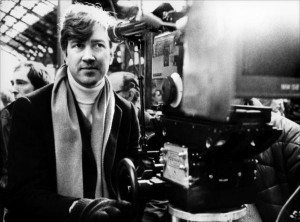
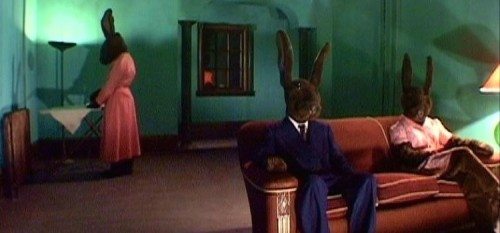
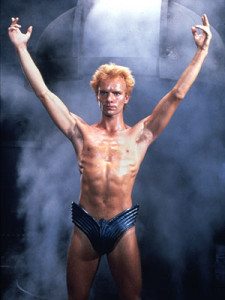
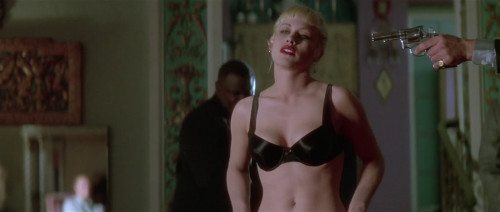
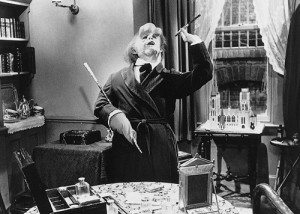
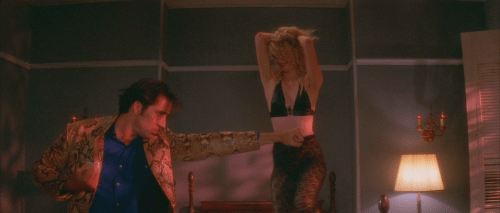
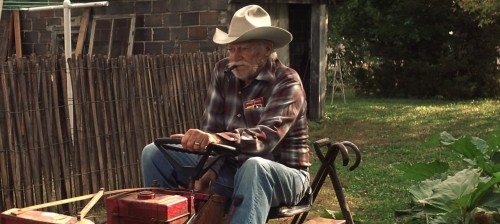
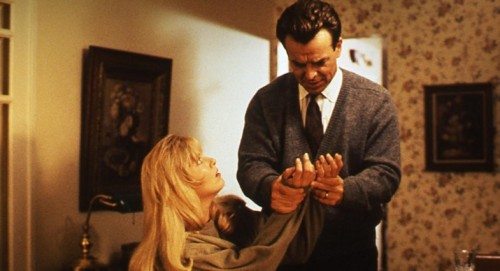
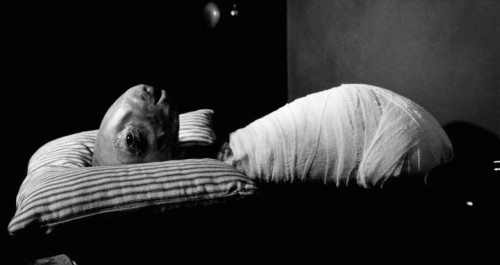
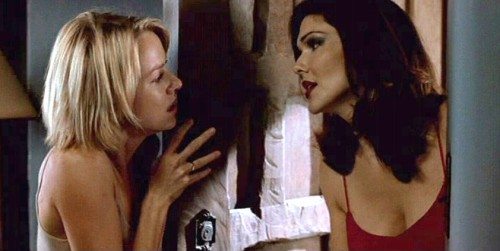
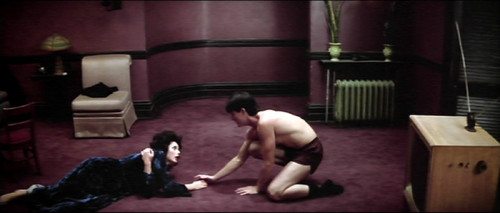
Oh Lynch. I agree without agreeing too much.
For I was not a fan of Fire Walk and think I prefer both Mulholland Drive and Eraserhead to Blue Velvet, as sacriligeous as that sounds. Also, nothing is worse than Dune? Although I have not actually so much as seen Inland Empire as not watched it very often.
Also, where is Boxing Helena on this list? Surely Lynch’s daughter is just some dreamworld construct used to subvert our conscious desires? She must be him as surely as identity is fluid. But I guess then there would be something worse than Dune…
Don’t tell me there’s nothing worse than Dune until you sit through every minute of Inland Empire. Then we’ll talk.
It’s not quite sacrilege to prefer Eraserhead and Mulholland to Blue Velvet. They’re all great. But yeah. I think Blue Velvet is the most perfectly Lynchy Lynch movie there is.
I loved the moment during the opening titles of The Straight Story where it said, “Walt Disney Pictures Presents…A David Lynch Film” and the whole audience started laughing.
Yes, a Disney movie by David Lynch was a great set of titles to behold.